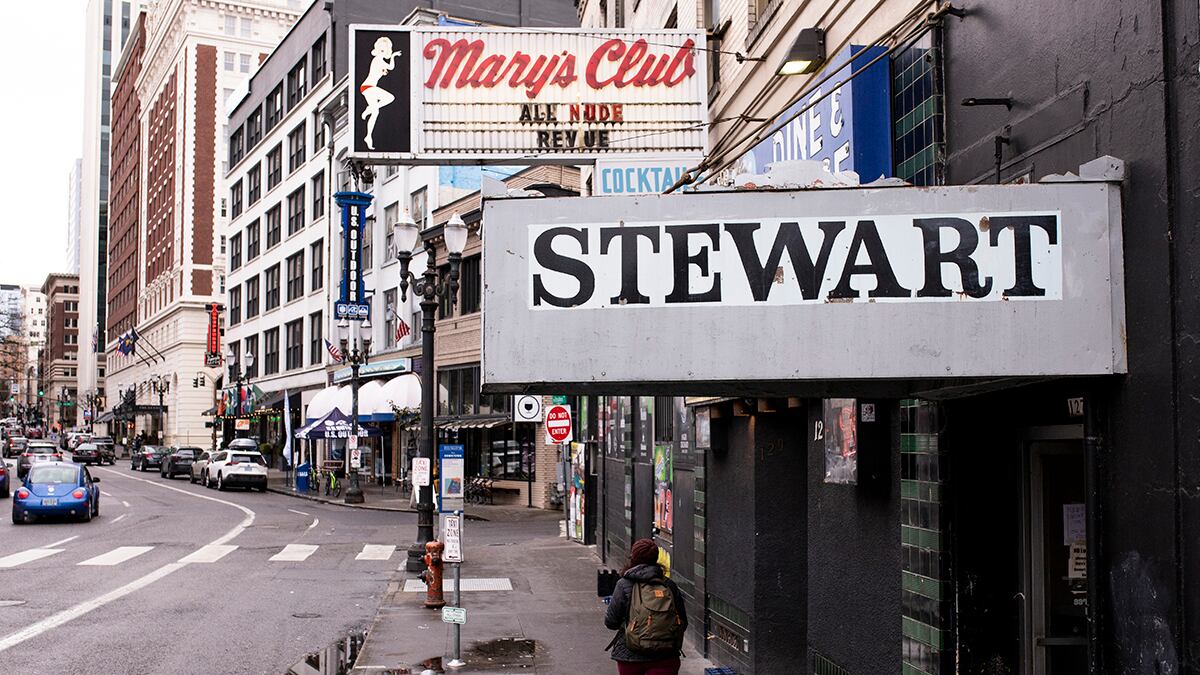When former Oregon Supreme Court Justice Hans Linde died Aug. 31 at 96, his obituary in The New York Times captured what an influential figure he was nationally.
"Linde was one of the giants of the American judiciary," Harvard law professor Laurence H. Tribe told the Times. "His brilliant work both as a law professor, and for a little over a dozen years as a justice on Oregon's highest court, addressed not just important issues of state law but also unsettled questions of federal constitutional law in a series of opinions, articles and books that were justly influential throughout the nation and ultimately the world."
In an essay, Portland journalist Susan Elizabeth Shepard took a look at Linde's influence locally:
The neon of a new strip club sign in the middle of a commercial block and a porn store across from a playground are part of the ways Portland's geography was shaped by former Oregon Supreme Court justice and legal scholar Hans Linde, who died last week.
The broad protections for where and how people can be nude in this state is just one part of Linde's vast legacy, but it's the part with the biggest impact on Portland's image. Linde's 1982 opinion in State v. Robertson is the most consequential free speech decision in state history and paved the way for Portland to become both "Pornland" and "Little Beirut."
Linde was known for his pioneering work in finding broader assurances of civil rights in state constitutions than those granted at the federal level, and Robertson interpreted Oregon's free speech protections as more expansive than the First Amendment. Between 1982 and 1988, the court invalidated laws targeting the content of expression, including obscenity, and zoning ordinances that restricted where strip clubs and adult bookstores could locate.
Cities and counties could no longer stop clubs from having nude dancers with alcohol or from opening up wherever they liked, leading to Portland's club boom. The last agency that could target nude dancing, the Oregon Liquor Control Commission, lost its authority to enforce rules against "lewd activity" in 2005 when the court found Oregon's statute prohibiting live sex shows (State v. Ciancanelli) and a city ordinance requiring dancers be 4 feet from patrons while unclothed (City of Nyssa v. Dufloth) both unconstitutional in opinions based on the Robertson framework.
I interviewed Linde in 2015 for a story about the case behind Robertson, in which University of Oregon football players were prosecuted for sexual assault under the state's coercion statute. That Oregon's free speech protections stem from an appeal in a sexual assault case has always struck me as illustrative of what a complex good they are. They have made combating hate speech, stalking and harassment difficult and "free speech" has been the banner under which the Proud Boys and Patriot Prayer rally in the city.
Last year, former University of Oregon law professor Garrett Epps wrote for The Atlantic about that complexity after he sheltered in OMSI waiting for Proud Boys to pass through the Central Eastside, writing that "Now the right has targeted Linde's haven for destruction."
One of the problems with freedom of speech being the go-to legal defense for strip clubs is that it's no substitute for labor rights or the freedom to work without state persecution. But Linde's decisions have given dancers the latter, at least, in Oregon. In some other states, they work under the constant fear of potentially life-ruining club raids where a too-close lap dance can result in an arrest. It's not that conservative Oregon lawmakers haven't tried to change that, it's just that all they have to show for it are failed ballot measures and drafted bills that wouldn't pass the Robertson test.
Time and money are changing Portland's landscape again, and accomplishing what the laws can't as adult businesses close one by one. After the pandemic, we're likely to have a different city again. But for now, there's still a lot to see, thanks to Linde. Portland wouldn't have been the same without him.
For those who want to know more about Linde, here is a 1999 WW cover story about Linde by former WW reporter Maureen O'Hagan, who went on to staff jobs at The Washington Post and Seattle Times, where she was a finalist for a Pulitzer Prize.
